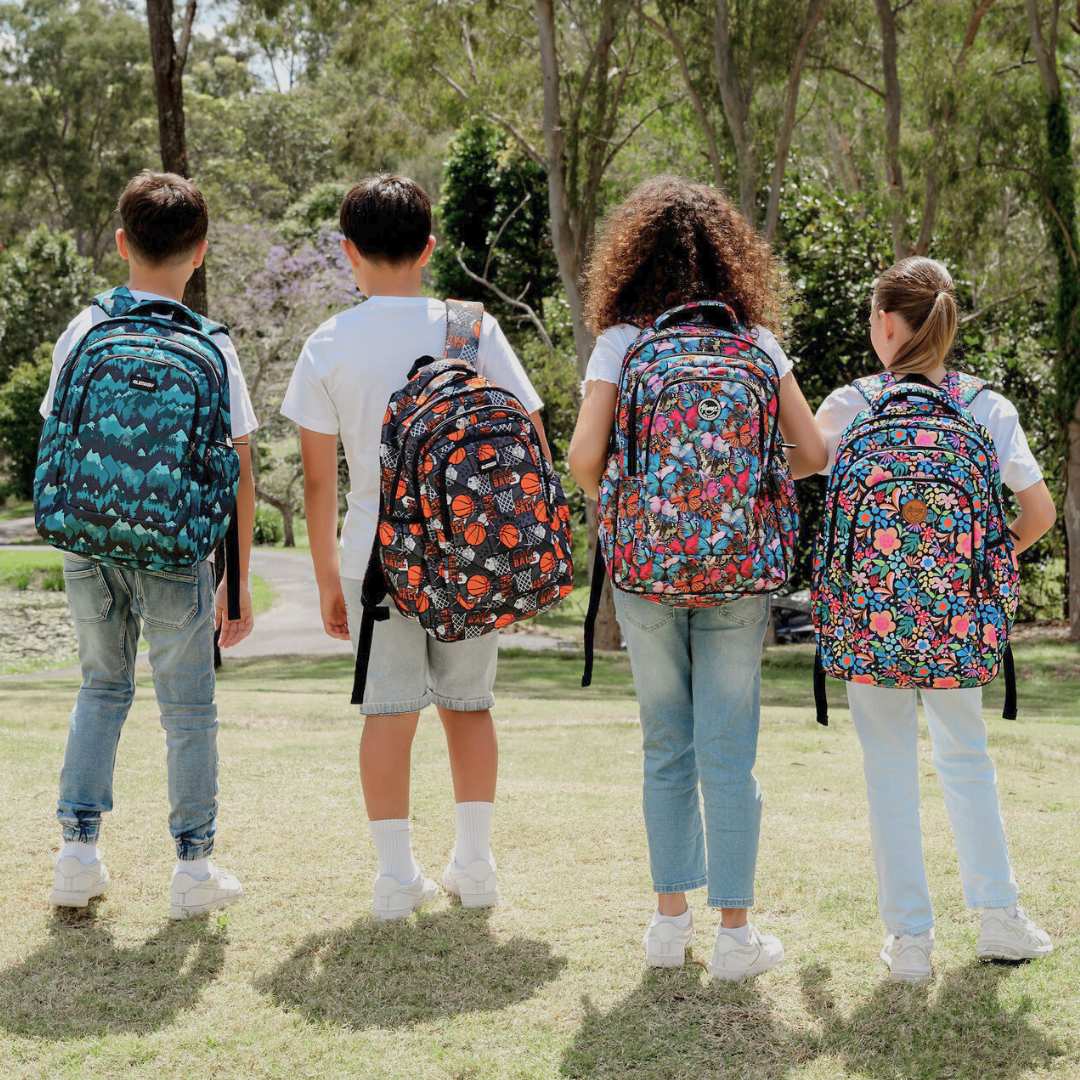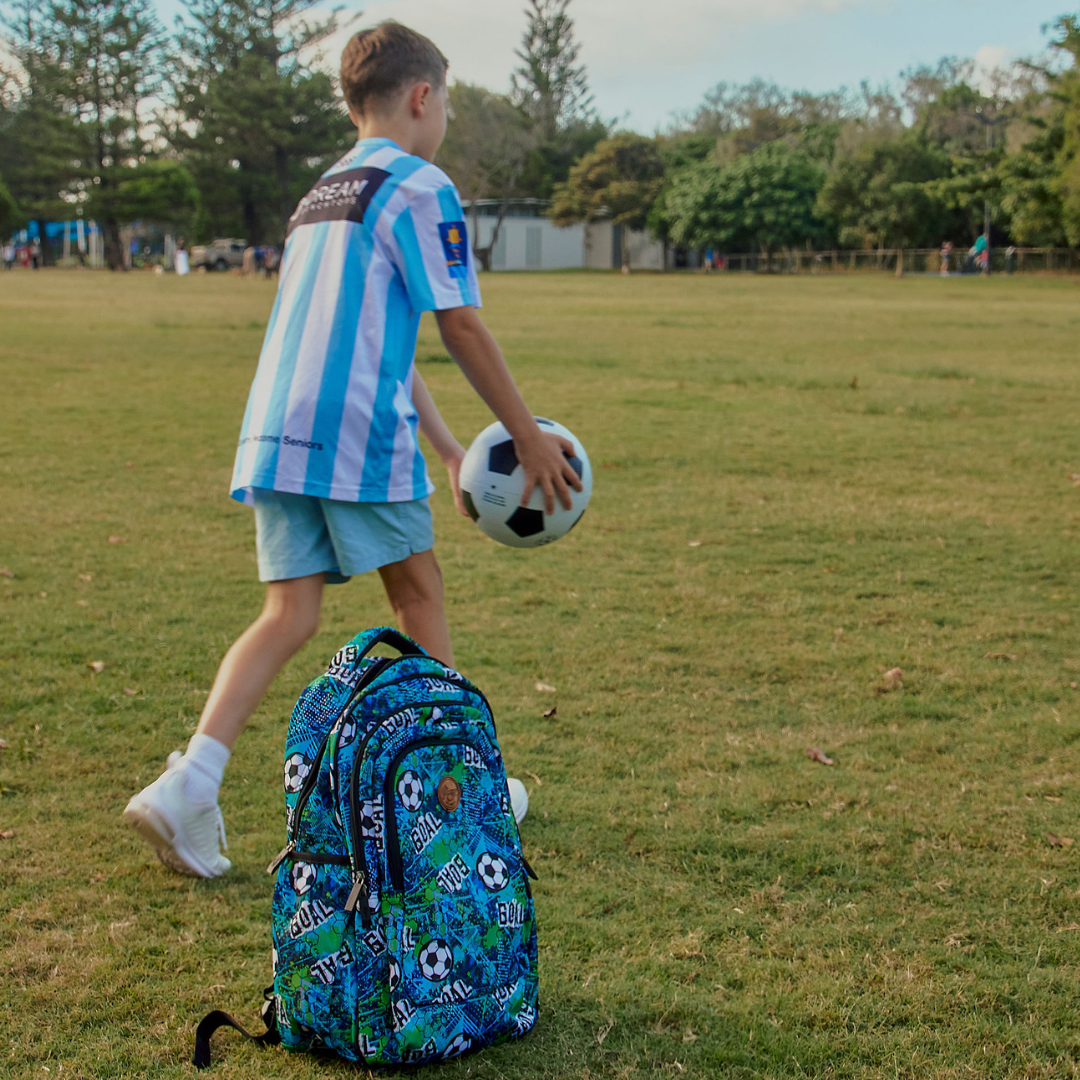How to Organise Your Kid's Backpack for School: Tips and Tricks
Sending your child off to school with a well-organised backpack not only ensures they have everything they need for a successful day but also teaches valuable lessons in responsibility and time management.
A clutter-free and well-arranged backpack can reduce stress and help your child stay focused on learning.
In this blog, we will share some practical tips and tricks to organize your kid's backpack for school, turning it into a handy tool for academic success
1.Declutter Regularly.
Before starting the new school year or each term, have a decluttering session with your child. Remove any unnecessary items, outdated papers, or broken supplies from the backpack. Encourage your child to keep only the essentials to maintain a lightweight and organised backpack.
2. Invest in Quality Backpacks.
Choose a sturdy and ergonomic backpack with multiple compartments. Look for a sturdy and comfortable backpack which has designated pockets for water bottles, stationery, and electronic devices. An ergonomic design with padded straps and back helps distribute the weight evenly and reduces strain on your child's shoulders and back. Involve your child in the selection process to ensure they like it and feel excited to use it.
3. Make a Checklist.
Sit down with your child and create a checklist of essential items they need to carry to school daily. This list may include textbooks, notebooks, stationery, a lunch box, a water bottle, and any other required materials. Having a checklist will help your child remember what to pack each day, reducing the chances of forgetting important items.
4. Utilise Compartments
Teach your child to use the different compartments of the backpack wisely. Reserve the main compartment for heavier items such as lunchbox, textbooks and notebooks, while smaller pockets can hold stationery, snacks, and personal belongings. Using compartments will prevent items from getting mixed up and make it easier for your child to find what they need quickly.
5. Use Zipped Pouches and Small Containers.
Utilize zippered pouches or small containers to keep various items grouped together. These can include a pencil case for pens and pencils, a small container for snacks, and a separate pouch for electronic accessories like earphones and chargers. This method prevents small items from getting lost and makes them easily accessible.
6. Create a Homework Folder.
Designate a specific folder or section within the backpack to store completed homework and any papers that need to be returned to school. This prevents important documents from getting lost in the jumble of papers.
7. Pack Strategically.
Encourage your child to pack their backpack strategically. Heavier items, like textbooks, should be placed closer to the back and centered to distribute the weight evenly. Lighter items can go towards the front. This arrangement reduces strain on the back and helps maintain balance.
8. Keep a To-Do List.
Develop a habit of writing down daily or weekly to-do lists for school assignments and activities. Have a small notepad or use a smartphone app where your child can jot down important dates, deadlines, and reminders. Regularly check and update the to-do list to stay on top of tasks.
9. Pack and Sort Before Bedtime.
Establish a routine with your child to sort and organize the backpack the night before school. This ensures they have everything they need for the next day, avoids last-minute panic, and sets the tone for a stress-free morning.
Final thoughts:
Organising your kid's backpack for school is a simple yet effective way to support their academic journey. By decluttering regularly, investing in a quality backpack, and using zippered pouches, you can help your child maintain a well-organised and efficient backpack.
Additionally, strategic packing, creating a homework folder, keeping a to-do list, and sorting before bedtime are essential habits that foster responsibility and preparedness. With these tips and tricks, your child will not only excel in their studies but also develop essential life skills for a successful future.
Happy organising!






